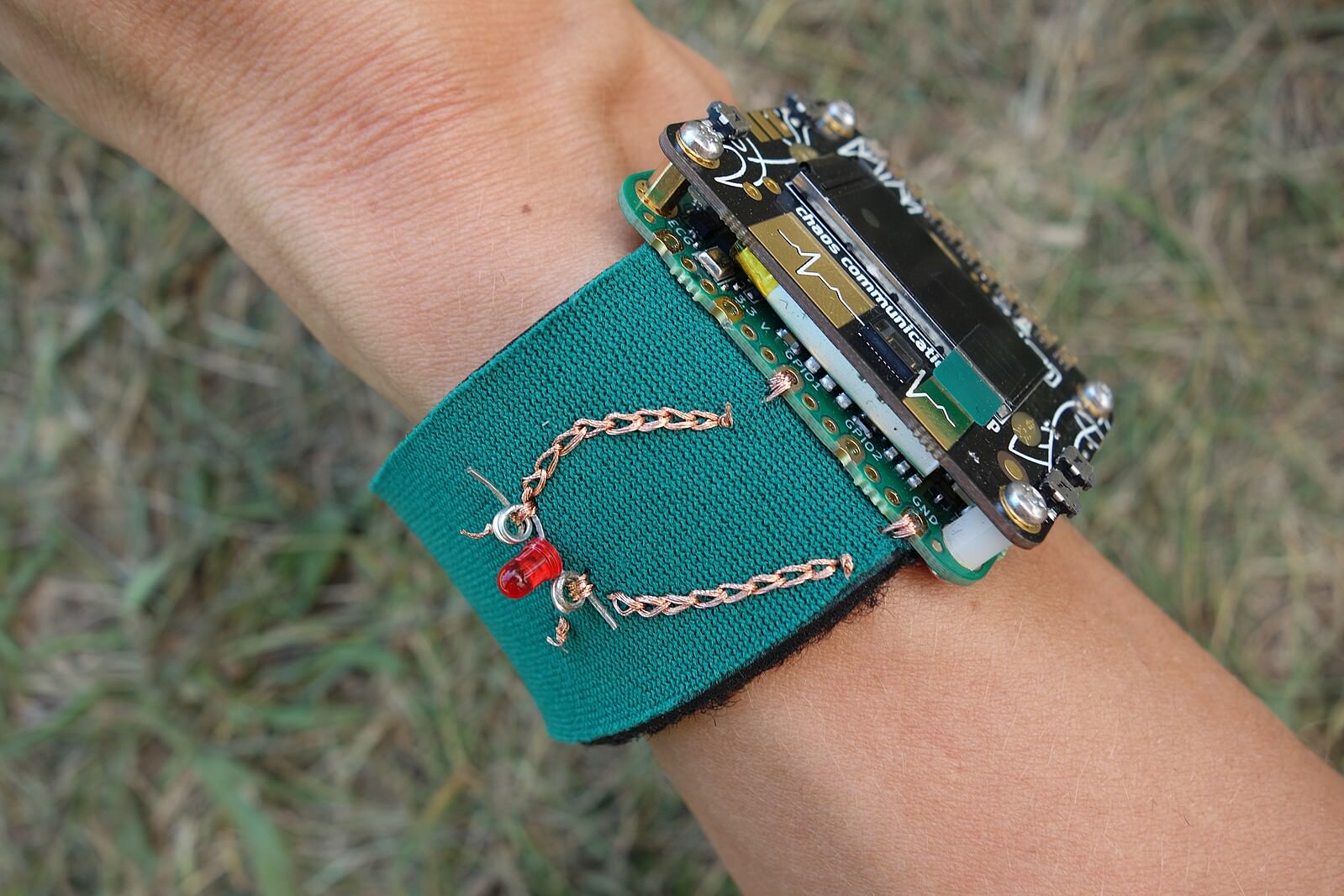Lifestyle
20 Technologies That are Changing the Way We Age
By Jake Beardslee · March 26, 2024


Autonomous Vehicles: A New Era of Mobility
Self-driving cars are not just a futuristic concept but a burgeoning reality with profound implications for the elderly. These vehicles promise to extend mobility and independence, reducing reliance on caregivers for transportation. Companies like Waymo are at the forefront, testing and refining autonomous vehicles to cater specifically to older adults' needs. Mliu92/Unsplash
Health Monitoring Wearables: Keeping a Pulse on Wellness
The market is flooded with devices capable of tracking vital signs, physical activity, and sleep patterns. These gadgets offer a seamless way to monitor health, providing data that can be shared with healthcare providers to tailor medical care. This technology is pivotal in preventing, managing, and treating chronic conditions that often accompany aging. Luke Chesser/Unsplash
Voice-Activated Assistants: Simplifying Daily Tasks
Voice-activated assistants such as Amazon's Alexa and Google Assistant are making technology more accessible. By enabling users to perform internet searches, control smart home devices, and make calls through simple voice commands, these assistants are helping seniors stay connected and manage their homes with ease. MarkChristopherWebster/Wikimedia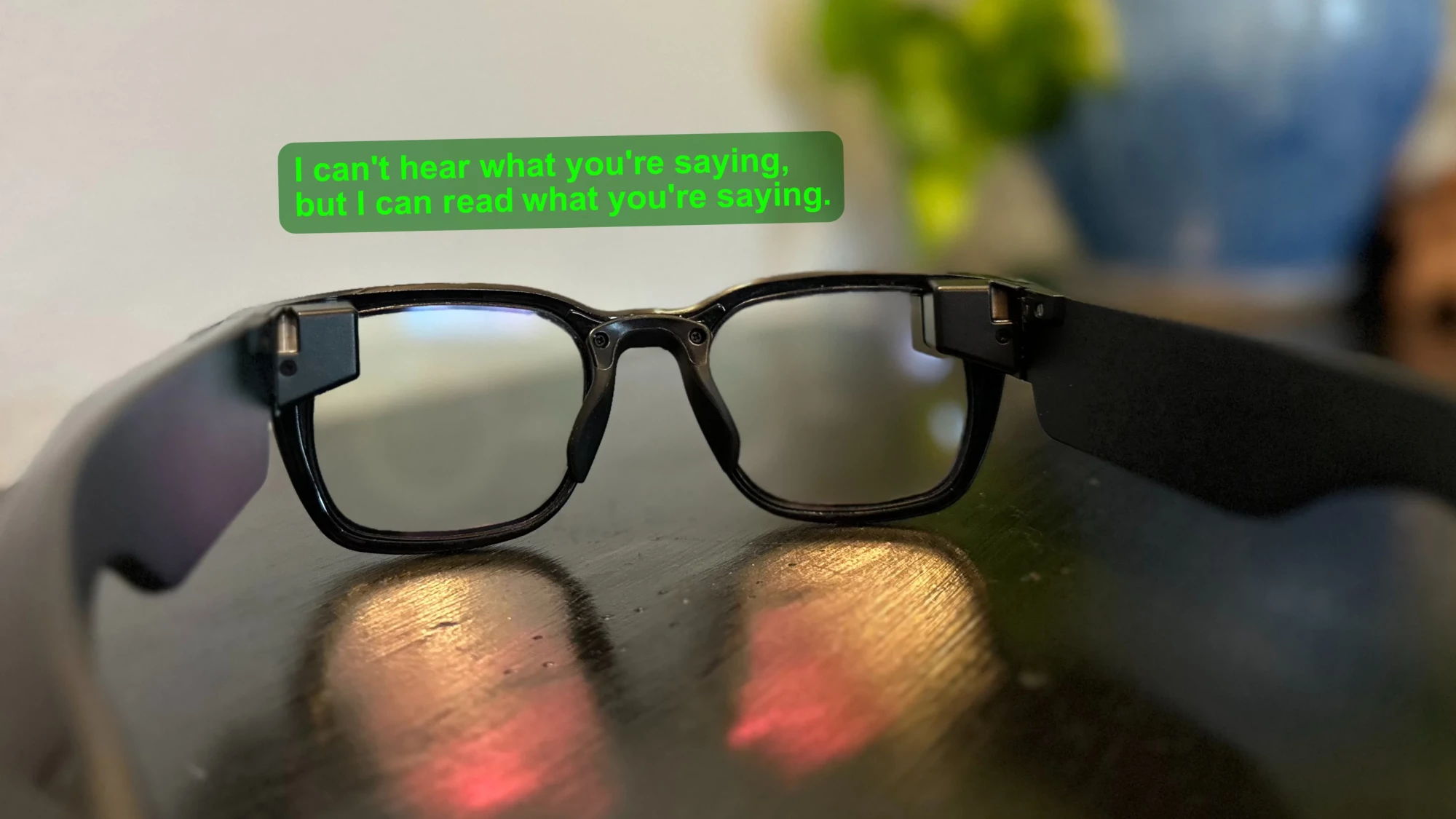
Revolutionary Hearing Aids and Captioning Glasses
Innovations like over-the-counter hearing aids and XanderGlasses, which offer real-time captioning on their lenses, are breaking new ground in communication technology for the hard-of-hearing. These advancements promise to enhance social interaction and engagement for those experiencing hearing loss. Xander.tech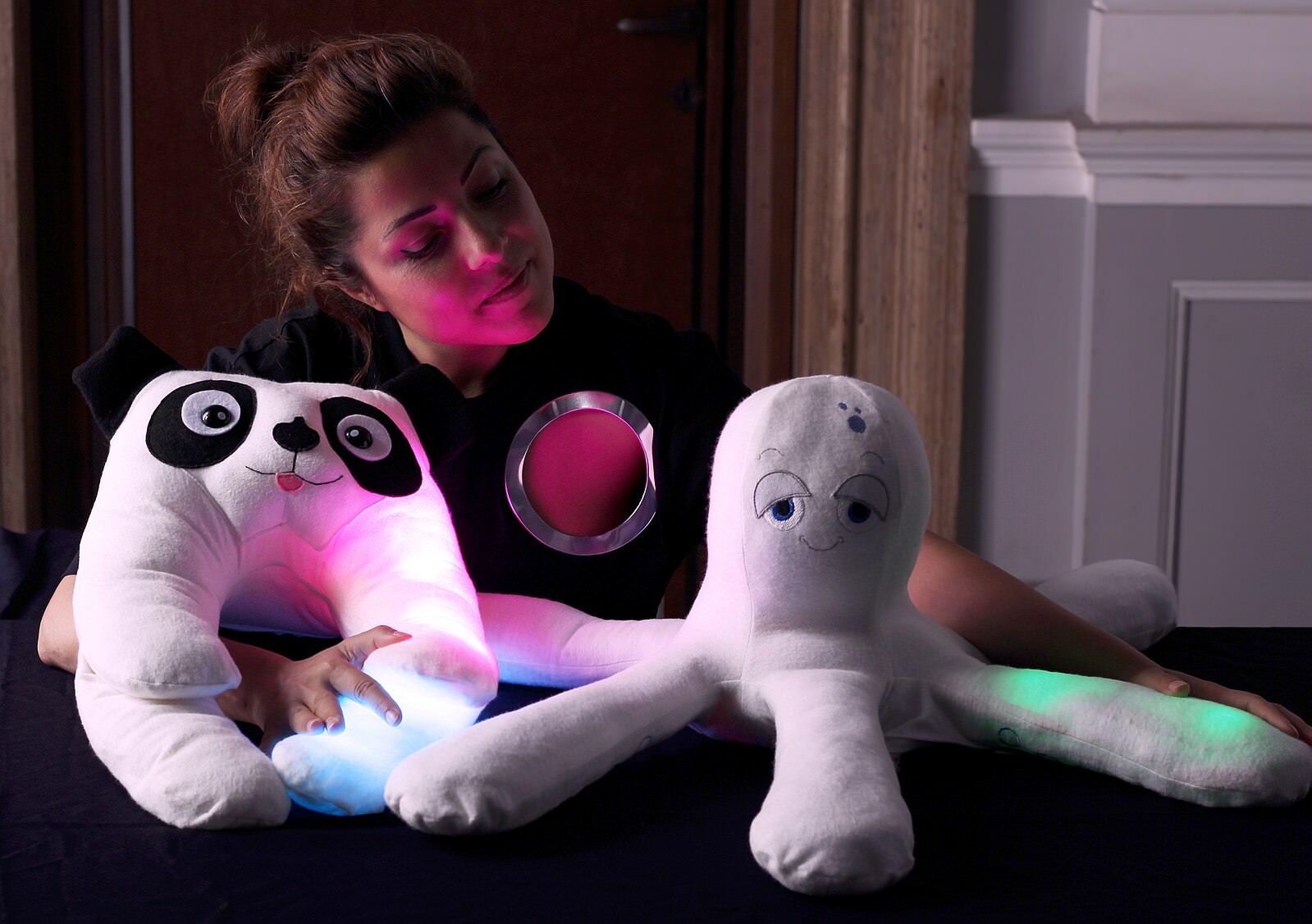
Companion Robots: Beyond Traditional Pets
Robots like Amazon's Astro are redefining companionship, offering assistance with daily tasks, medication reminders, and emergency alerts. Unlike pets, these robots can navigate homes autonomously, carry objects, and even facilitate remote communication with loved ones in case of an accident. Besteozcan/Wikimedia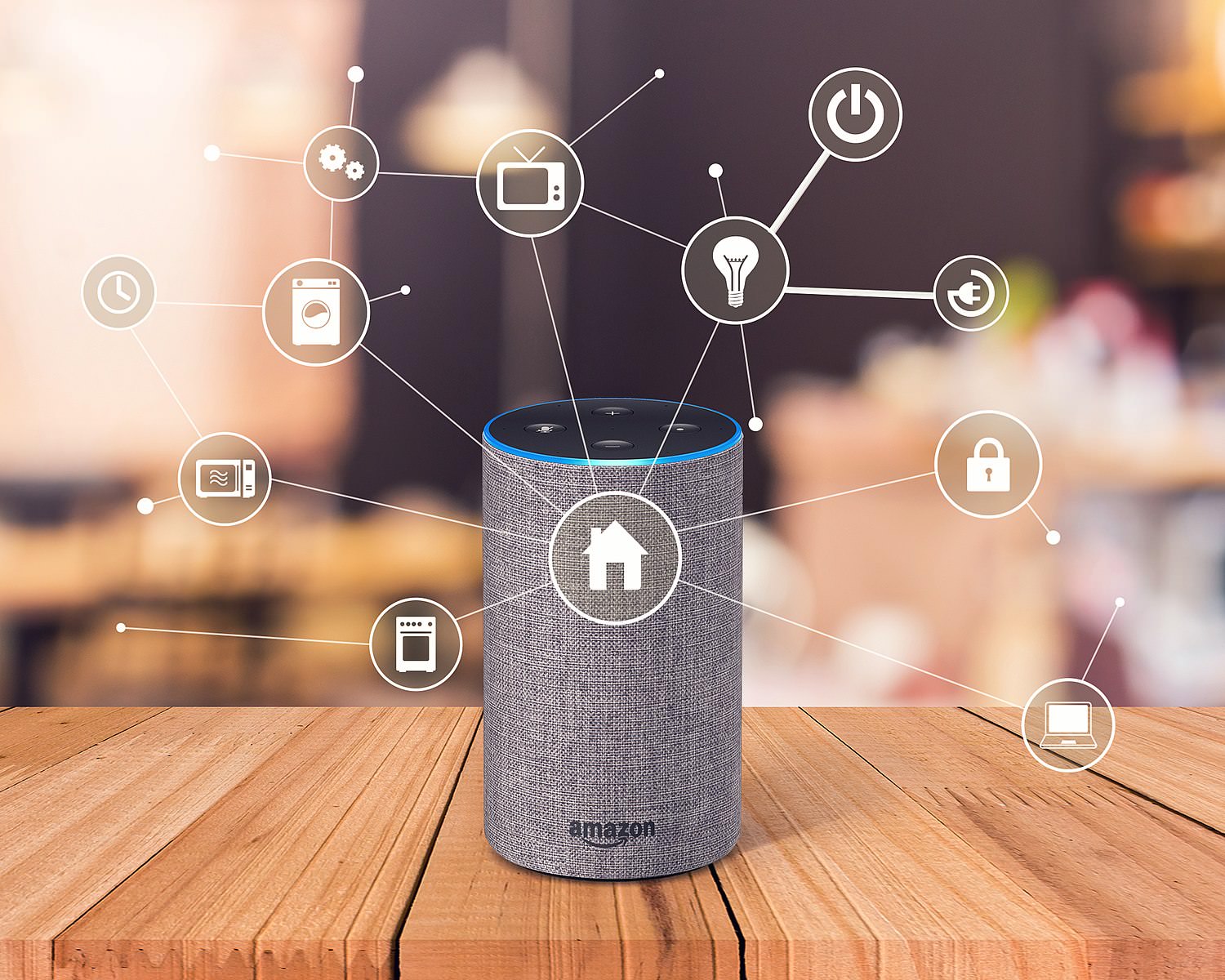
Smart Home Devices: Enabling Independent Living
Smart technology is making homes safer and more convenient for the elderly. From automated lighting and thermostats to smart locks and fridges, these devices can help seniors maintain their independence, manage household tasks more efficiently, and ensure a safer living environment. mikemacmarketing/Wikimedia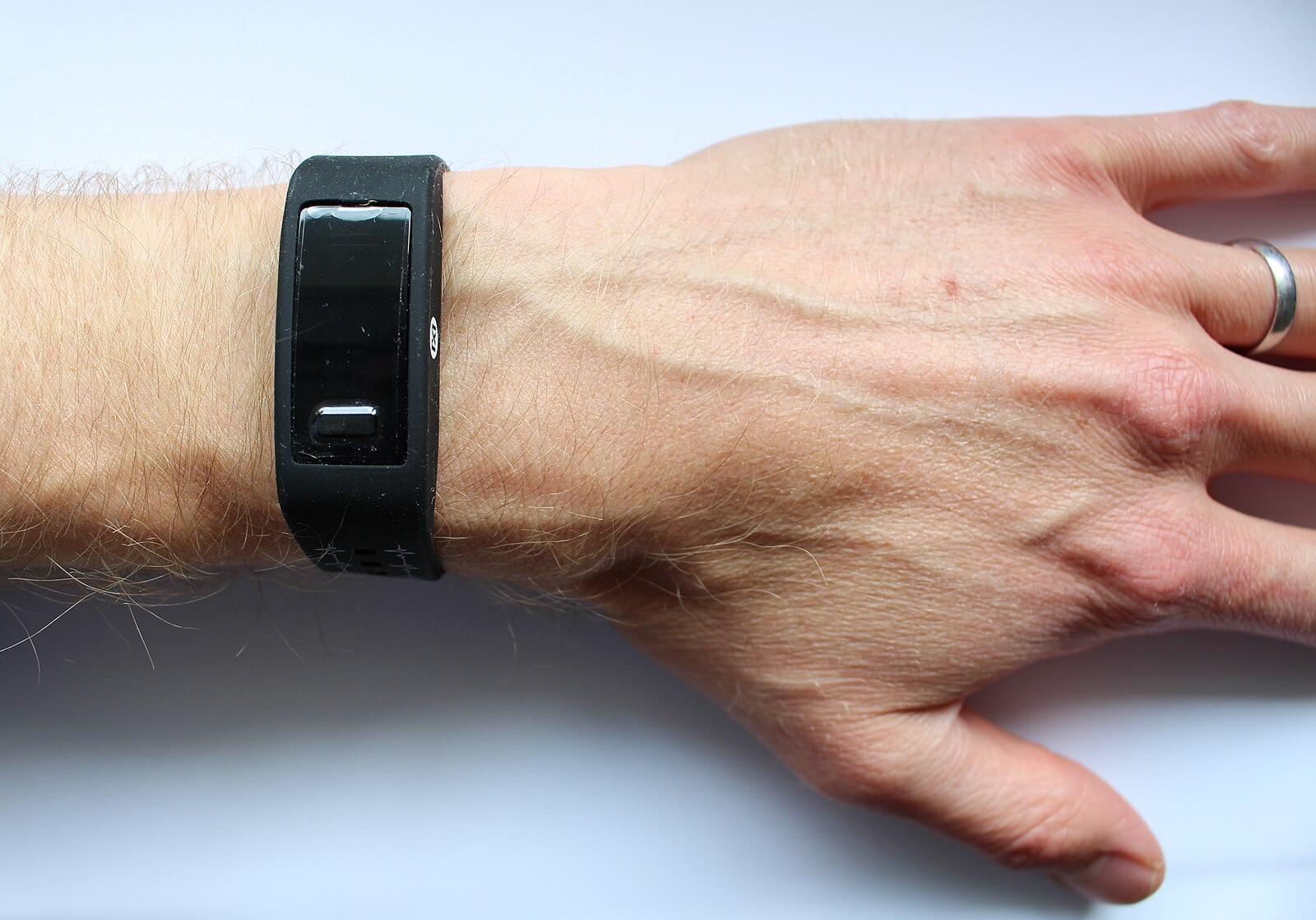
Fitness Trackers: Promoting Active Lifestyles
Wearable technology is not just for the young. Fitness trackers encourage physical activity among seniors by monitoring steps, heart rate, and exercise patterns. This feedback can motivate users to maintain a healthy lifestyle, contributing to their overall well-being. Peterhcharlton/Wikimedia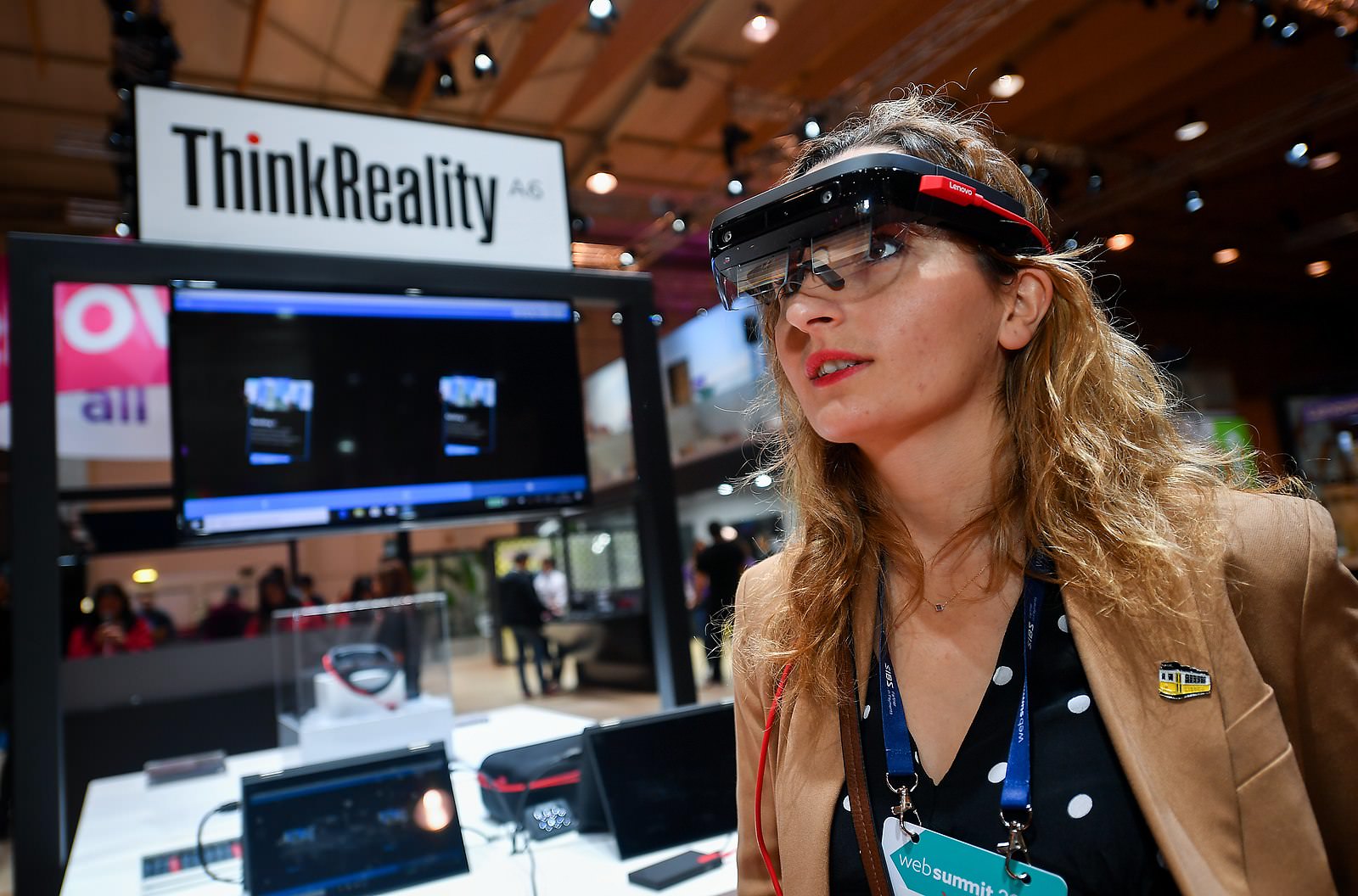
Virtual Reality: Expanding Experiences
Virtual reality (VR) offers older adults unique experiences, from virtual travel to cognitive exercises, without leaving home. VR technologies are also being explored for their therapeutic potential in treating conditions such as dementia and chronic pain. Web Summit/Wikimedia
Financial Management Tools: Safeguarding Economic Independence
Online tools and services provide seniors with resources to manage their finances, from tracking investments to protecting against fraud. These technologies empower older adults to maintain financial independence and safeguard their assets. Carlos Muza/Unsplash
Telehealth: Transforming Access to Care
Telehealth services facilitate remote consultations and health monitoring, making healthcare more accessible. This technology is especially beneficial for seniors, reducing the need for physical visits and providing a continuous connection to healthcare providers. National Cancer Institute/Unsplash
Lifelong Learning Platforms: Encouraging Intellectual Engagement
Online platforms offer endless opportunities for learning, enabling seniors to explore new subjects, acquire skills, and engage intellectually. These resources cater to a wide range of interests, from academic courses to hobby-based learning, fostering a sense of purpose and community. Chris Montgomery/Unsplash
Medication Management Devices: Ensuring Adherence
Smart pill dispensers remind users to take their medication at the right time, reducing the risk of missed doses. These devices are crucial for managing chronic conditions and maintaining health, offering peace of mind to both seniors and their caregivers. Julia Zolotova/Unsplash
Accessibility Innovations in Technology: Making Devices Friendlier
Technological advancements have led to more accessible smartphones, tablets, and computers, with features like voice control, large text, and simple interfaces. These improvements make it easier for seniors with varying degrees of tech-savviness to stay connected and informed. Christine Hume/Unsplash
Social Networking for Seniors: Fostering Connections
Digital platforms tailored to older adults help them stay socially active, combatting loneliness and isolation. These sites enable users to reconnect with old friends, make new ones, and participate in online communities, enhancing their social well-being. Timothy Hales Bennett/Unsplash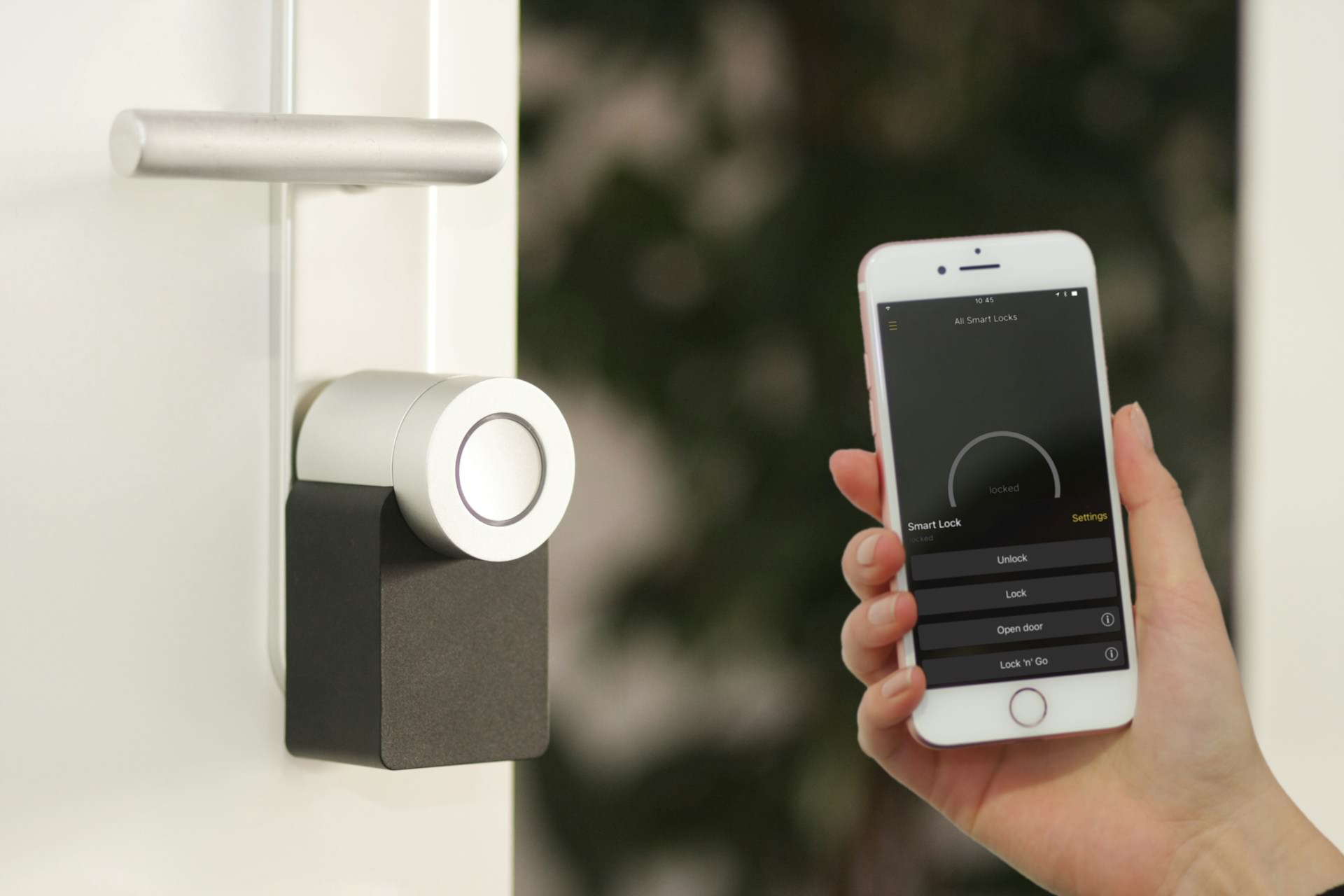
Advanced Home Security Systems: Offering Peace of Mind
Today's home security technologies provide families and elderly individuals with enhanced safety features. Motion sensors, cameras, and smart locks not only protect against intruders but also offer functionalities like wellness checks and emergency alerts. Sebastian Scholz (Nuki)/Unsplash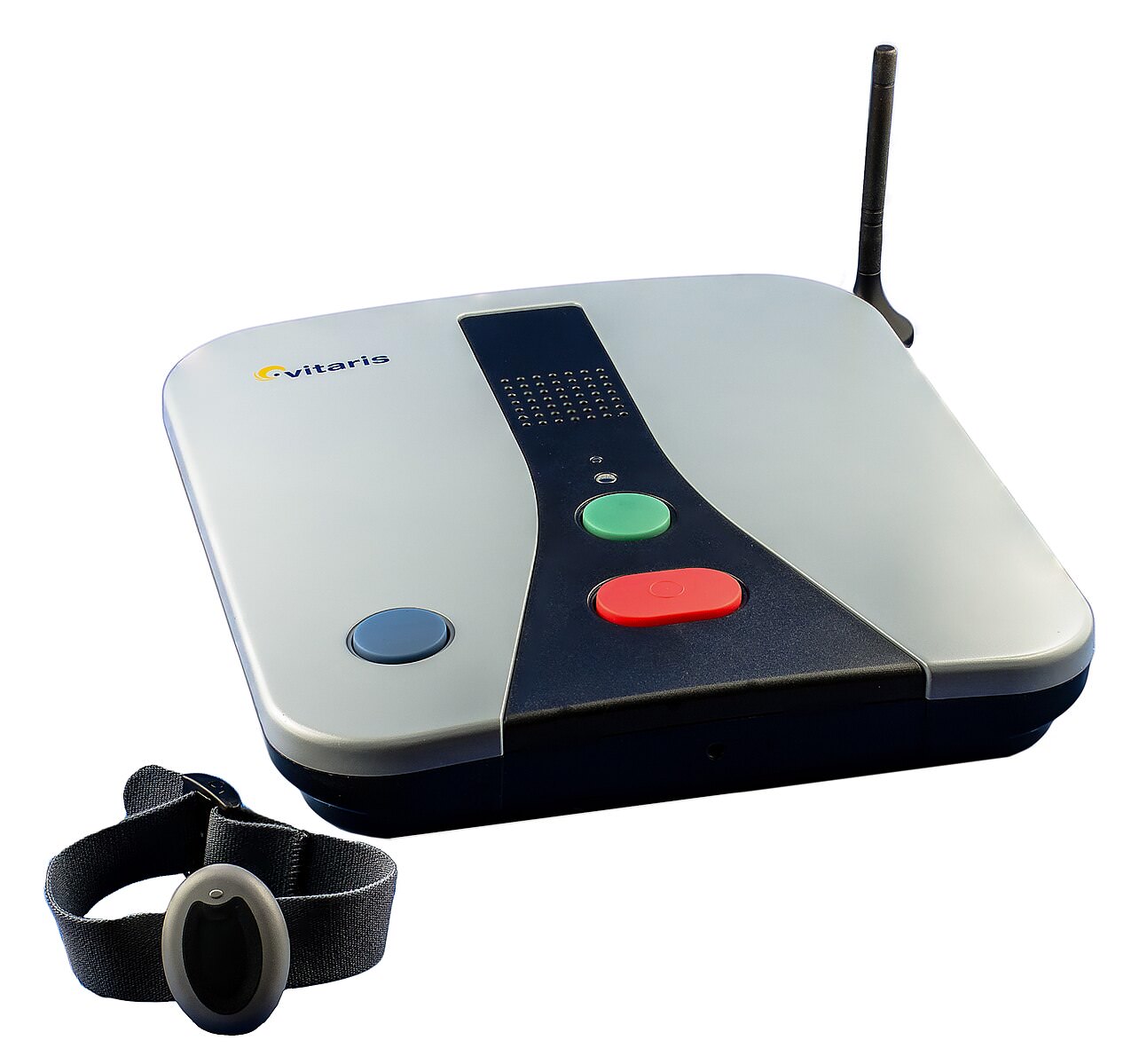
Emergency Alert Wearables: Life-Saving Gadgets
Wearables equipped with fall detection and emergency call features can be lifesavers, literally. By automatically alerting family members or emergency services following an incident, these devices ensure that help is on the way when needed most. Florian Fuchs/Wikimedia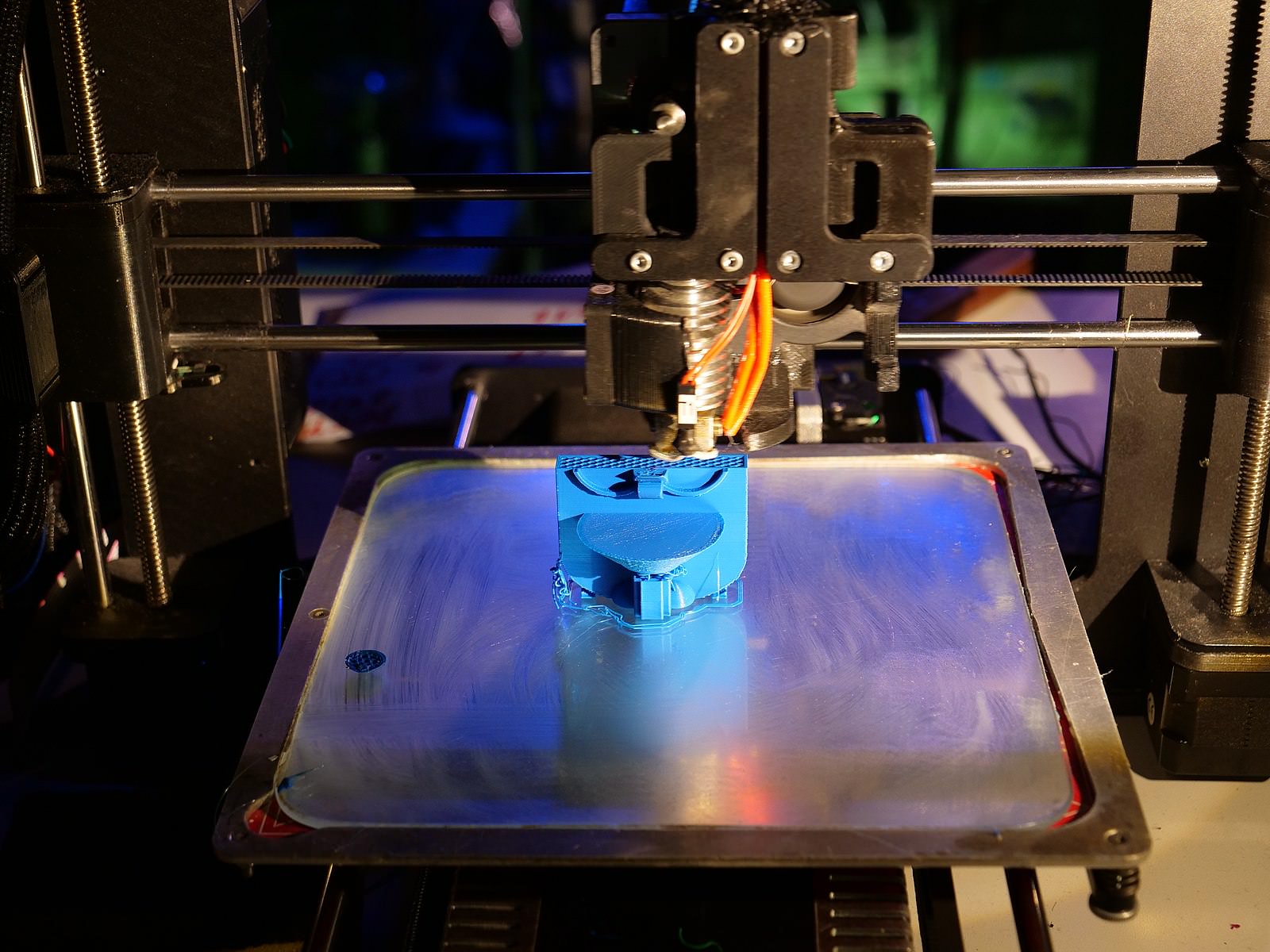
3D Printed Assistive Devices: Personalized Aid
3D printing technology allows for the creation of custom assistive devices, from prosthetics to adaptive tools. This innovation offers personalized solutions to improve daily living, making tasks more manageable. Leonhard Lenz/Wikimedia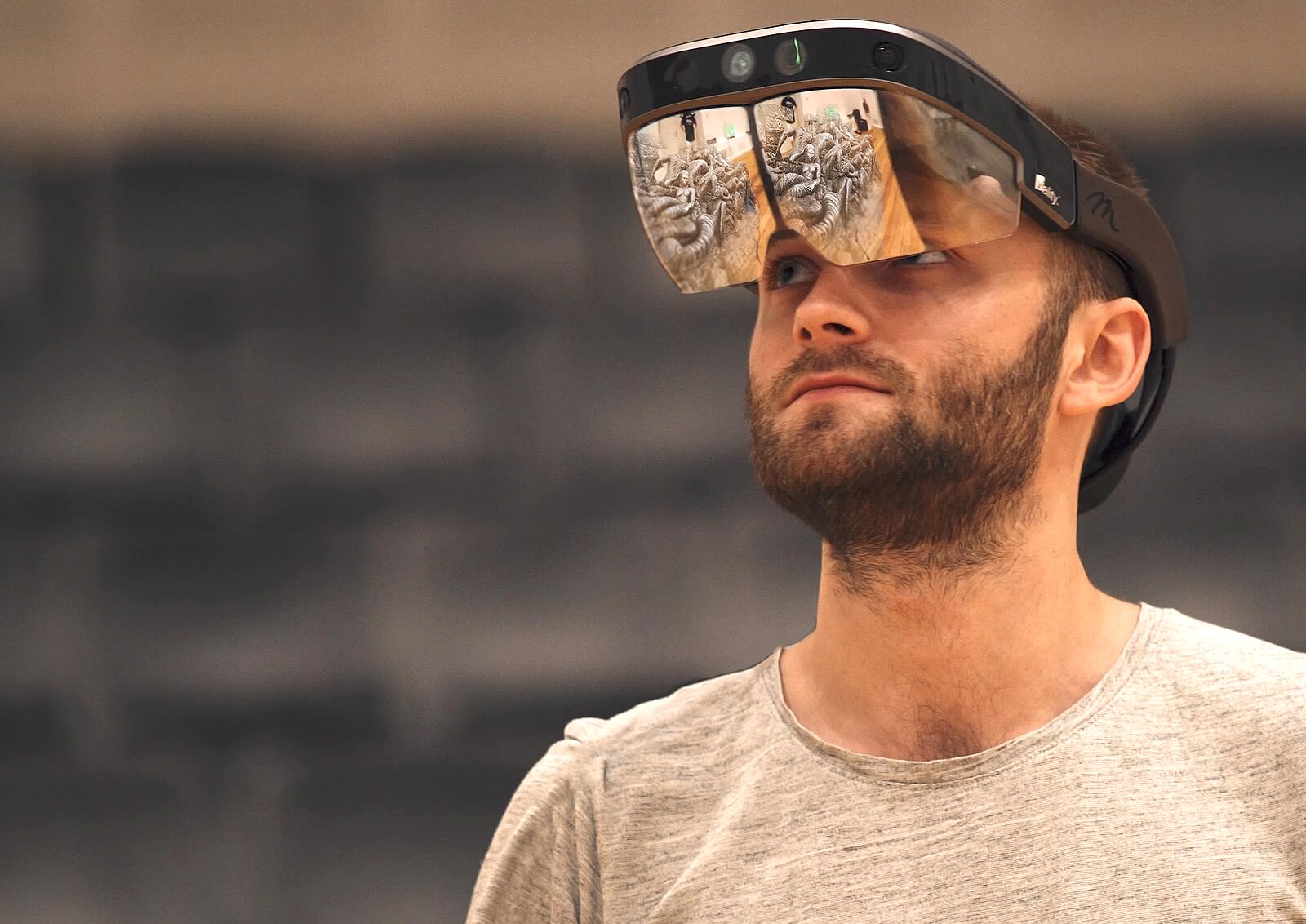
Augmented Reality for Cognitive Health: A Mindful Approach
Augmented reality (AR) apps and games are being developed to support cognitive health, offering engaging ways to enhance memory, attention, and problem-solving skills. This technology holds promise for delaying or mitigating the effects of cognitive decline. Maxibu/Wikimedia
Digital Legacy Services: Preserving Memories
Online platforms enable seniors to record and share their life stories, wisdom, and values with future generations. These services ensure that their legacy is preserved and accessible, bridging the gap between past and future. Nenad Stojkovic/Wikimedia